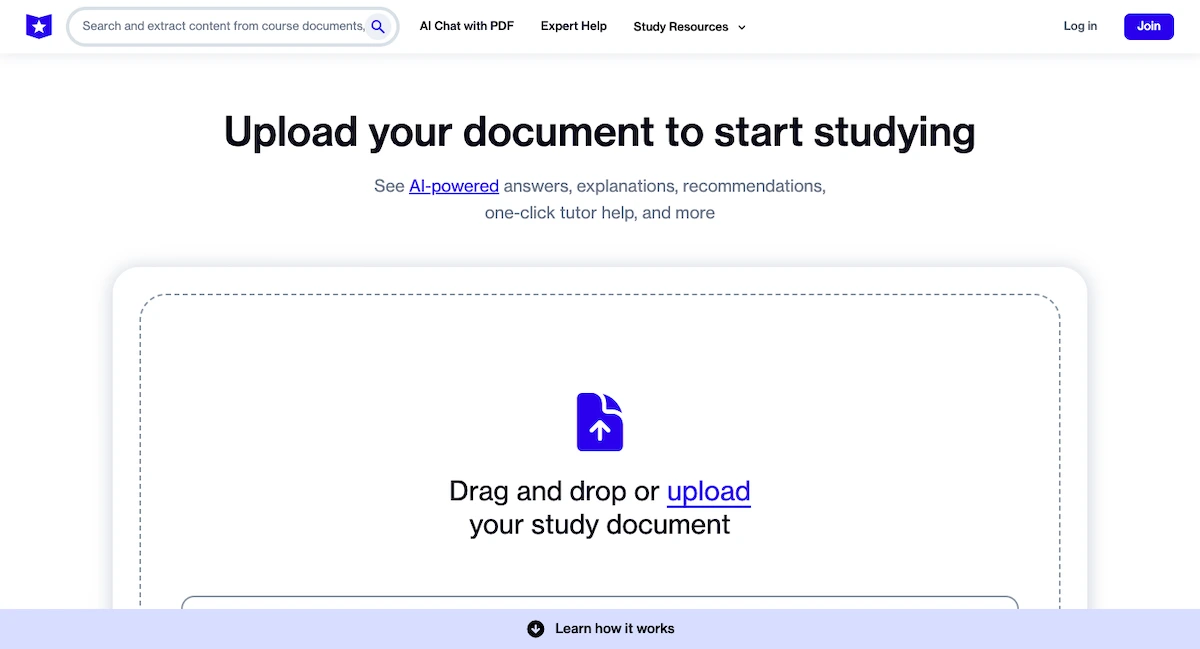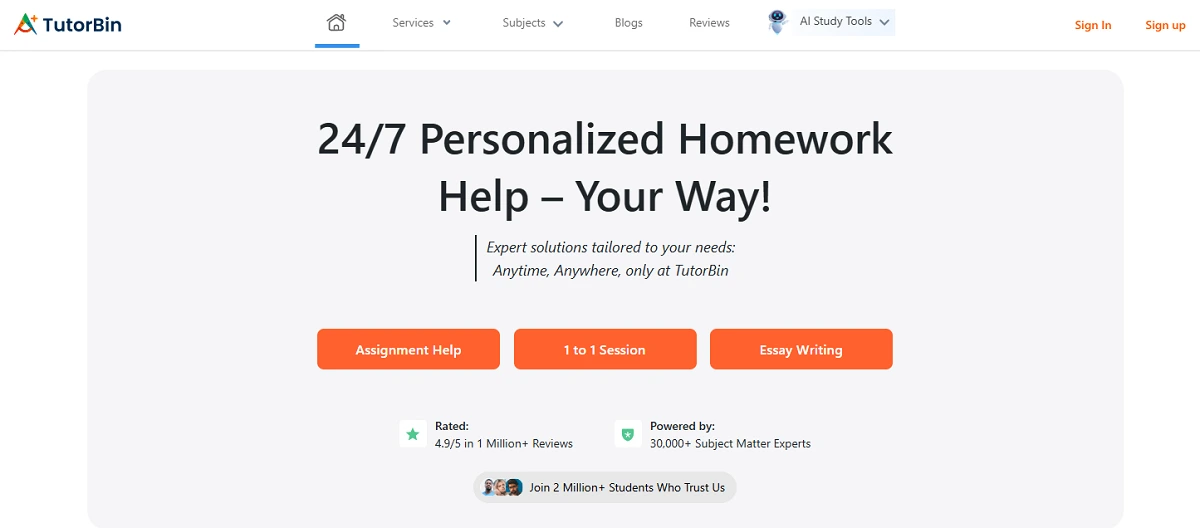TutorLyft is an online tutoring marketplace in Canada that matches students with professional tutors. It offers one-on-one tutoring in various subjects, mainly for school and college levels. This article helps students and parents compare TutorLyft’s services, pricing, and reviews. We also cover alternatives so readers can make an informed choice.

TutorLyft Reviews and Testimonials
TutorLyft’s own website features many student testimonials (often embedded as video) and a banner claiming “Verified 5-Star Reviews”. For example, one featured user writes “Highly recommend,” calling the service “seamless & efficient”, and another mentions the tutor’s “patience” leading to the student “feeling confident”. These comments highlight positive outcomes (like score improvement and confidence). However, exact review counts or platform ratings are not provided by TutorLyft.
We found no major external review sites (like Trustpilot or SiteJabber) with substantial feedback on TutorLyft. ScamAdviser gives the TutorLyft website a trust score of 76/100 (low-to-medium risk), suggesting it’s likely a legitimate business. No glaring complaints about scams or fraud appeared in our search.
Is TutorLyft legit? Based on what we saw, TutorLyft appears to be a real tutoring platform. The ScamAdviser score (76/100) is positive, and there are no reports of fraud. Students on its site praise the service, and tutors run background checks (only ~10% applicants pass). Therefore, while independent reviews are sparse, there is no sign of a scam.
TutorLyft Pricing
Pricing Range

TutorLyft tutors set their own hourly rates, which typically range from about $30 to $100 per hour. This is roughly USD 30–100 (Canada dollars). There are no subscriptions or signup fees. For example, TutorLyft’s site notes tutors charge “between $30-$100/h per tutoring session”. The company takes a 20% commission on each session, so a tutor earning $100 keeps $80. (For comparison, Wyzant charges a 25% fee.)
If you need different services, TutorLyft mainly offers one-on-one tutoring (online or in-person). There is no separate price list for homework help or test prep – all sessions are billed by hour. The tutor’s experience and qualifications affect the rate. More experienced or highly-rated tutors tend to charge near the top of the range. (Adult learners often pay more – one profile noted adult-education tutoring at $50–$120/h.) But again, each tutor’s profile shows the exact rate.
What students say about TutorLyft’s pricing
Reviews suggest TutorLyft’s rates are in line with the tutoring market. For example, industry data shows high-school tutoring generally costs ~$30–100/hr. TutorLyft’s $30–100 range matches this norm. We did not find many comments specifically complaining about TutorLyft pricing. Given the tutors are required to have strong qualifications (often degrees and experience), many users feel the prices are fair for the quality. Some tutors on forums note that upper rates (near $100) are higher than general marketplace rates, but also say the vetting justifies it. Overall, pricing seems justified by the expert level of tutors and is similar to other premium platforms.
Hidden costs
TutorLyft explicitly states there are no hidden fees for students. There is no registration or subscription fee. You only pay for booked sessions. The only extra potential charge is for cancellations: if you cancel a session less than 24 hours in advance, you are charged the full fee. Otherwise, a full refund is given for cancellations ≥24 hours ahead. There are no known add-on fees or processing fees mentioned. The “Tutor Match Guarantee” gives a free makeup session if you aren’t happy, which is a benefit, not a cost.
How TutorLyft’s pricing works
Payment is pay-as-you-go per session. You pay for each session at booking time, typically by credit card (TutorLyft uses Stripe). There are no monthly subscriptions or required packages. Tutors receive 80% of the rate (after TutorLyft’s 20% fee) and are paid bi-monthly. Students can schedule individual sessions or recurring lessons if desired. TutorLyft also offers occasional corporate discounts: for example, they mention a 10% discount for employees of certain partnered companies. However, there are no general student discounts or coupons. Overall, you choose a tutor and book one session at a time, paying only the stated hourly rate upfront.
Free Trial
TutorLyft does not have a free tutoring trial session, but it does offer a free initial consultation. You can book a short introductory phone call with a tutor at no cost to discuss your needs. This lets you see if the tutor is a good fit before paying for a full lesson. (The first lesson itself must be paid unless it is waived by the tutor.) So while there’s no free lesson, the platform lets you connect and ask questions for free first.
Refund policy
TutorLyft’s refund rules are straightforward. If you cancel ≥24 hours before a session, you get a full refund. If you cancel within 24 hours or no-show, the session fee is charged (though they handle some cases individually). Importantly, they have a “Tutor Match Guarantee”: if you take a session and feel the tutor isn’t a good fit, TutorLyft will refund that session and give you the next hour free with a different tutor. We did not see any user complaints about unfair charges or denied refunds. In fact, on TutorLyft’s blog they highlight this guarantee as a trust signal. Users on other platforms generally mention TutorLyft’s refund policy as generous and say they received prompt refunds if unhappy. We found no reports of hidden charges or overbilling.
TutorLyft Alternatives
Students might look for alternatives if TutorLyft doesn’t meet their needs (for example, if they live outside Canada or need different subjects). Popular alternatives include large global platforms. Below is a brief introduction and some top alternatives, including My Engineering Buddy (MEB).
Wyzant

Wyzant is a large US tutoring platform with tens of thousands of tutors. Its pros include a huge range of subjects (from elementary to advanced) and easy online/in-person booking. You can find very high-end tutors (even Ivy League grads) on Wyzant. However, Wyzant is known for very high rates; many tutors charge over $100/hr. Wyzant also takes a 25% commission (versus TutorLyft’s 20%) plus extra service fees. In practice, Wyzant students find it reliable but expensive. In contrast, TutorLyft limits rates to around $100 and has lower platform fees, but has far fewer tutors (mostly Canada-based) and focuses on math and science. If you need niche or top-tier tutors (and don’t mind paying more), Wyzant might have more choices. TutorLyft may offer lower pricing and rigorous vetting at the cost of fewer tutor options.
Chegg

Chegg (formerly Chegg Tutors) was well-known for on-demand homework help and tutoring, mostly for high school and college. Its strength is 24/7 availability and a Q&A platform for instant answers. Pricing was generally lower (subscriptions or per-question fees). However, Chegg’s tutoring arm was discontinued in 2021, so live tutoring is no longer available. Chegg still offers study resources and expert Q&A. Compared to TutorLyft, Chegg’s model was more self-study oriented and cheaper, but with less personalized teaching. TutorLyft offers full live tutoring sessions, whereas Chegg focused on solved examples. Students looking strictly for on-demand homework answers might use Chegg (or Course Hero), but those wanting scheduled personal tutoring (especially for math/science) would prefer TutorLyft.
Course Hero

Course Hero is a study-help platform with uploaded course materials, notes, and a tutoring question system. It mostly provides homework solutions and explanations. It works by subscription (around $10–20/month). Pros: very large library of content and quick answer service. Cons: it is not real-time tutoring; answers can be slow (24–48 hours), and quality varies. Students often say Course Hero is useful for common homework problems but not for teaching complex concepts live. TutorLyft, by contrast, offers live one-on-one teaching, which can be better for understanding material. TutorLyft is more expensive per hour than Course Hero’s subscription, but TutorLyft gives personal attention. In short, Course Hero is good for quick homework help and review, while TutorLyft is for live tutoring sessions.
TutorBin

TutorBin is an online tutoring marketplace based in India that serves students worldwide. It covers 250+ subjects and has over 100k tutors. A key advantage is cost: many tutors charge much lower rates (often $10–30/hr). There are 307 Trustpilot reviews with an average 4.4/5, suggesting most students are happy. Positive reviews mention “affordable pricing” and “rapid responses”. However, several 1-star reviews (about 16%) claim poor experiences and even scams, so quality control may be uneven. Compared to TutorLyft, TutorBin is cheaper but less selective. TutorLyft vets tutors thoroughly, while TutorBin’s vetting is unclear. If budget is a major factor, TutorBin can be an option, but if you want guaranteed high tutor quality and support, TutorLyft may be safer.
My Engineering Buddy (MEB)

My Engineering Buddy is a global tutoring and homework help service (headquartered in India) that targets college-level STEM students. It offers 1:1 online tutoring in engineering, math, programming, etc., plus assignment and project help. Its pros: experts from top universities and professionals, 24/7 support, and dedicated help for advanced topics. For example, Reviews.io shows MEB has a 4.8/5 score from 288 reviews. Many reviews praise its tutors and quick support. MEB tutors often use a fixed fee-per-task model (for example, a price per homework question) rather than hourly, which can sometimes be cheaper for big projects. In contrast, TutorLyft charges by the hour and focuses on general academic subjects up to college. A con of MEB is that it’s entirely online (no in-person option) and not tailored to Canadian K–12 curricula. Students needing help with engineering or computer science projects might prefer MEB for its subject focus. Students seeking local in-person help or just general math tutoring might stick with TutorLyft.
How it Works?
For Students

Students start by visiting the TutorLyft site and browsing tutor profiles. No account is needed to search. They select a subject and see tutors’ photos, bios, qualifications, and hourly rates. The site also shows which tutors offer in-person sessions or online only. If unsure, a student can request a free initial phone consultation with a tutor to discuss needs. Once a tutor is chosen, the student uses the built-in booking system: they pick a date/time from the tutor’s availability and pay through the platform. TutorLyft then connects (for online sessions, via Zoom) at the scheduled time. Students receive a Zoom link and reminder. After the session, they can book follow-ups directly on the tutor’s profile (no extra sign-up needed).
For Tutors
Becoming a TutorLyft tutor involves a multi-step process. First, candidates submit an online application form with their education and experience. Next, they have a short interview with the founder (usually about 15 minutes) to verify credentials and fit. After passing the interview, tutors record an introductory video (free of charge, with help from TutorLyft’s team). This video appears on the tutor’s profile. Once the profile is approved and live, the tutor can start receiving student bookings. No prior sign-up fee is needed; the video production is complimentary.
TutorLyft vets tutors carefully: only about 10% of applicants are accepted. Tutors must have at least 3 years’ relevant experience and usually a university degree. Many are certified teachers or advanced students. There is no fixed salary: tutors set their own hourly rate and keep 80% after TutorLyft’s 20% commission. They get paid by TutorLyft via direct deposit twice a month. Tutors can cancel anytime (no long contract). TutorLyft supports tutors with marketing, but actual new bookings vary; the site notes an average of 3–5 new student bookings per month per tutor. Tutors manage their own schedules and must handle all sessions through the platform (they can’t switch to private bookings). If tutors do well, they may build a steady stream of students through this network.
FAQs
Can tutors set up their own fee or is it fixed? Tutors on TutorLyft set their own hourly rate. Each tutor’s price appears on their profile. The platform does not impose a fixed rate; it only takes a 20% cut after you set your price.
How much can a tutor expect to earn hourly? A tutor’s earnings depend on their rate. For example, if a tutor charges $50/hr, TutorLyft takes 20% ($10) and the tutor keeps $40. Top tutors at $100/hr would earn $80 after commission. There is no published pay scale – it’s whatever you set and students agree to pay.
How many hours of work can a tutor get per month? It varies widely. TutorLyft reports aiming for 3–5 new student bookings per month per tutor. Each booking could be multiple sessions. So a busy tutor might get 4–10 sessions per month, but this depends on subject demand and the tutor’s efforts. There is no guaranteed minimum number of hours.
Is it easy to get students? TutorLyft is a competitive marketplace. Success depends on your niche and profile. Because the platform is relatively small, some tutors find fewer students than on giant sites like Wyzant. On average, TutorLyft brings a few new students monthly. To attract more, tutors often create a strong profile video, collect good student reviews, and price competitively. Rapid response and flexibility also help. We saw that TutorLyft gives tools like real-time calendars, which means you can often be booked quickly if you maintain an open schedule.
Tips on how to get more students on TutorLyft: Make a clear, professional profile video and write a friendly bio. Start with slightly lower rates to build reviews, then raise them later. Answer student messages promptly. Offer a helpful first session and encourage satisfied students to rate you. Tutors also suggest highlighting niche skills (like engineering or test prep) in your profile. Overall, treat it like a small business: good communication and reliability lead to referrals.
What tutors like about TutorLyft: Tutors often praise the company’s organization and policies. For example, one tutor review noted the founders are “approachable, transparent, and open to ideas” so they “don’t feel like a number”. Tutors appreciate that they can set their own schedule and rate. Many like that TutorLyft handles billing and promotions, allowing them to focus on teaching. The personal vetting process also gives tutors confidence that they are among qualified peers. In general, tutors report a supportive environment and a decent flow of students.
What tutors do not like about TutorLyft: Criticisms are relatively few, but some tutors mention limited work. Since TutorLyft is smaller and Canada-focused, there are fewer students than on larger sites. Some say it can take time to build a client base. A few tutors dislike that all bookings must stay on the platform (they can’t move students off-platform for extra sessions). Others note that the platform currently focuses heavily on math – if you teach a less common subject, you might find less demand. Finally, tutors point out the vetting is strict: only ~10% get accepted, so many qualified people never make it on.
TutorLyft: Company Information
Founding and background: TutorLyft was founded by Omar Andani. He struggled in school until a great tutor helped him, inspiring TutorLyft’s creation. Omar is from Vancouver, now in Toronto, and holds an MBA from Western University. The exact founding year is not listed, but it is a relatively new company (growing mainly in the late 2010s).
Founders: The founder is Omar Andani. His story of turning academic struggles into motivation is central to the brand. He and his team built the company to focus on personalized tutoring. Omar’s background as a student who benefited from tutoring drives the company mission. (According to his profile, he now loves improving education access.)
Mission: TutorLyft’s mission is to improve student confidence and outcomes through personalized 1:1 tutoring. They emphasize that “no one should have to navigate [their educational] journey alone”. The founder’s message repeatedly says they are committed to helping students find the right tutor and rediscover their passion for learning.
Vision: TutorLyft envisions accessible, individualized education for everyone. They say education isn’t one-size-fits-all, so their vision is to tailor learning: connecting each student with the tutor best suited to unlock the student’s potential. In the long run, they aim to expand to new regions and subjects, but always with that personal touch. Their stated goal is that every student should have the support they need to thrive.
Scale of operation: TutorLyft is headquartered in Canada (Toronto) and primarily serves Canadian students. Its tutors are mostly located in Ontario and British Columbia, but since tutoring is online, they can technically serve students anywhere in Canada and even globally. The platform is online-only except where in-person options are explicitly offered (they list in-person tutoring in major Canadian cities). We did not find exact numbers for tutors or employees, but it’s clearly much smaller than a company like Chegg. It’s a national company with global capability but limited outside Canada. They do mention plans to “rapidly grow” their network of tutors across Canada.
Types of services: TutorLyft offers one-on-one tutoring sessions (live, via video or in person). Services include standard K-12 and university subject tutoring, homework help, exam prep, and admissions test prep. They do not do essay writing or non-academic writing. Sessions can be short or long, as arranged by student and tutor. All lessons are scheduled and paid per hour (no packages). They also offer corporate training for company families as a benefit (see below).
Subjects offered: TutorLyft covers many core academic subjects. Major offerings include Math, Physics, Chemistry, Biology, Computer Science, Economics, Languages (like English and French), and others. It serves all grade levels (elementary through college). Their “Compare tutoring platforms” tool and FAQ highlight K–12 math/science in particular, and mention many college-prep topics too. The list of tutor categories on the site shows most typical school subjects (see left sidebar of the site screenshot). In short, it covers 8-12 major subjects from kindergarten up to university.
Unique features: TutorLyft advertises several unique aspects. One is personal vetting: the founder personally interviews each tutor and only about 5–10% of applicants are accepted. Many tutors have advanced degrees or are certified teachers. Another feature is the Tutor Match Guarantee (refund + free hour). They also emphasize flexibility (no contracts, pay-per-session) and free initial consultations. The site’s values stress personalized connection and equitable pricing. In practice, reviews indicate these promises are mostly real: students report high tutor quality and prompt support. We did not find evidence of unmet promises in user feedback, aside from generic marketplace issues.
Comparison with My Engineering Buddy
My Engineering Buddy (MEB) is another online tutoring/homework-help service. The main differences are:
• Specialty: MEB focuses on university-level STEM (engineering, math, CS) with global tutors, whereas TutorLyft covers broad K–12 and some college subjects (with emphasis on math/science).
• Geography: TutorLyft is Canada-based and geared to students in North America (though available online), while MEB explicitly serves the US, UK, Canada, Australia, Gulf countries, etc..
• Pricing model: TutorLyft uses hourly pay-per-session, and costs roughly USD30–100/hr. MEB often uses task-based fees (homework questions, project help) which can be more affordable for big assignments. MEB also advertises discounts via word-of-mouth, and had a 4.8/5 rating on its review site.
• Quality assurance: Both claim high-quality tutors. TutorLyft hand-picks each tutor with strict criteria, while MEB says it “hires only the top tutors” (often PhDs or experts). In practice, both services highlight expert tutors.
Testimonials from MEB users: In MEB’s reviews, users praise its effectiveness. For instance, one tutor reports the platform’s “intuitive and easy” tools and values academic integrity. Another user says MEB is “perfect for balancing personal life or studies” because managers are “transparent” and tutors are “not treated like a number”. Several reviews specifically mention MEB’s strong refund and support policies – one says students got prompt refunds when needed and 24/7 helpline access.
Why consider MEB: MEB is especially good for complex engineering and math help. If you are an advanced student or doing a lot of homework/test prep in STEM, MEB’s specialized tutors may give more targeted help. TutorLyft is better for general K–12 tutoring in Canada. MEB’s global reach and 24/7 availability can be an advantage for students in any time zone. In short, students needing advanced college-level help might lean toward MEB, while those in Canada needing flexible K–12 math/science help might choose TutorLyft.
Customer Support and Policies
TutorLyft provides email/support via business hours (no 24/7 chat). Their policies include the 24h cancellation refund and the Tutor Match Guarantee. They do not offer scholarships or extra freebies. In our research, we saw no major complaints about customer service responsiveness. By contrast, MEB explicitly highlights 24/7 student support and prompt refunds, which users appreciate. Thus MEB may have an edge in round-the-clock support. Overall, both are fairly responsive, but TutorLyft’s support is more traditional (email/call during office hours) whereas MEB promotes always-available help.
Global Reach and Localization
TutorLyft is primarily Canadian. It supports both English and French (some tutors teach French) and operates online nationwide. For now, it’s not specifically tailored to non-English or emerging markets. Its main focus is Canada (with a bit of global reach). My Engineering Buddy, in contrast, is explicitly global: it markets to students in the US, UK, Australia, Gulf, etc. MEB’s platform is English-focused but open to international students. In terms of accessibility, MEB offers tutoring at any time zone (given its wide tutor base), whereas TutorLyft scheduling may still center on North American hours. My Engineering Buddy thus has broader global access, while TutorLyft is more localized (with in-person options in Canadian cities). Both serve international students online, but only TutorLyft has a bilingual element (English/French) for Canadian users.
TutorLyft’s future plans
TutorLyft is investing in new technology and expansion. Notably, they are exploring AI integration. The founder writes that TutorLyft envisions AI as a tutor’s assistant – for example, generating personalized lesson plans or practice problems quickly, while leaving mentorship to humans. This suggests TutorLyft plans to use AI tools (like ChatGPT or adaptive software) to make tutors more efficient. Apart from AI, TutorLyft says it aims to expand subjects beyond math as it grows, and to recruit more tutors across Canada. They are also building corporate partnerships (offering tutoring as an employee benefit). In summary: TutorLyft’s vision includes blending AI with human tutoring, adding more subject areas, and growing their national footprint, possibly with more employer-sponsored programs.
FAQs About TutorLyft
How does TutorLyft compare to My Engineering Buddy? Both offer online tutoring, but TutorLyft is Canada-based with a broad K–12 focus, while My Engineering Buddy (MEB) is global and STEM-focused. TutorLyft vets tutors strictly and charges by the hour ($30–$100/hr). MEB hires top engineering experts and often charges per assignment, with 24/7 support and quick refunds. In essence, TutorLyft is great for general academic help in Canada, whereas MEB excels in advanced college-level STEM tutoring.
What is TutorLyft and how does it work? TutorLyft is an online tutoring platform where students connect with vetted tutors for one-on-one lessons. Students browse tutor profiles, view qualifications and rates, then book sessions (either online or in-person if available). Payment is handled on the site before each session. Tutors set their own schedules and give lessons via video call or in person. TutorLyft then pays the tutors, taking a 20% commission.
Where is TutorLyft available? TutorLyft mainly serves Canada (its headquarters is Toronto). It offers online tutoring nationwide. In-person sessions are only in certain Canadian cities. The platform is accessible globally online, but its marketing and most tutors focus on Canadian students.
Can I cancel a session and get a refund? Yes. If you cancel at least 24 hours before the lesson, you get a full refund. If you cancel within 24 hours, you’re generally charged, though TutorLyft reviews case-by-case. Also, if a tutor-session is unsatisfactory, TutorLyft’s Tutor Match Guarantee offers a full refund plus one free make-up hour with another tutor.
Do tutors need to sign up or pay fees? To find a tutor, no sign-up is needed. You can browse and book without creating an account. (To actually schedule, you will enter payment details.) There are no subscription or hidden fees for students.
Are tutors qualified on TutorLyft? Yes. All tutors must be vetted by the founder and have relevant experience. Most are teachers, professionals, or top students with advanced degrees. TutorLyft’s strong vetting means tutor quality is generally high.
What subjects and grades does TutorLyft cover? It covers a wide range of subjects from elementary to college level. This includes math, science (physics, chemistry, biology), languages (English, French), computer science, and more. Students can find tutors from K–12 all the way to university courses in these subjects.
Conclusion
TutorLyft’s strengths are its thoroughly vetted tutors and strong customer guarantees. Its tutors are highly qualified and matched carefully to students, and it offers a money-back guarantee if you’re not satisfied. The site is easy to use and has no hidden fees. However, it is still fairly small and Canada-focused. Some users may find fewer tutor choices and higher rates for advanced topics. My Engineering Buddy (MEB) is a compelling alternative for students needing intense STEM help. MEB provides expert engineering/math tutors and 24/7 support. For complex subjects or flexible help across time zones, MEB may be better. But for general K–12 tutoring in Canada, TutorLyft’s personalized approach is excellent. Both have good reviews, so the best choice depends on your subject needs and budget.
******************************
This article provides general educational guidance only. It is NOT official exam policy, professional academic advice, or guaranteed results. Always verify information with your school, official exam boards (College Board, Cambridge, IB), or qualified professionals before making decisions. Read Full Policies & Disclaimer , Contact Us To Report An Error

